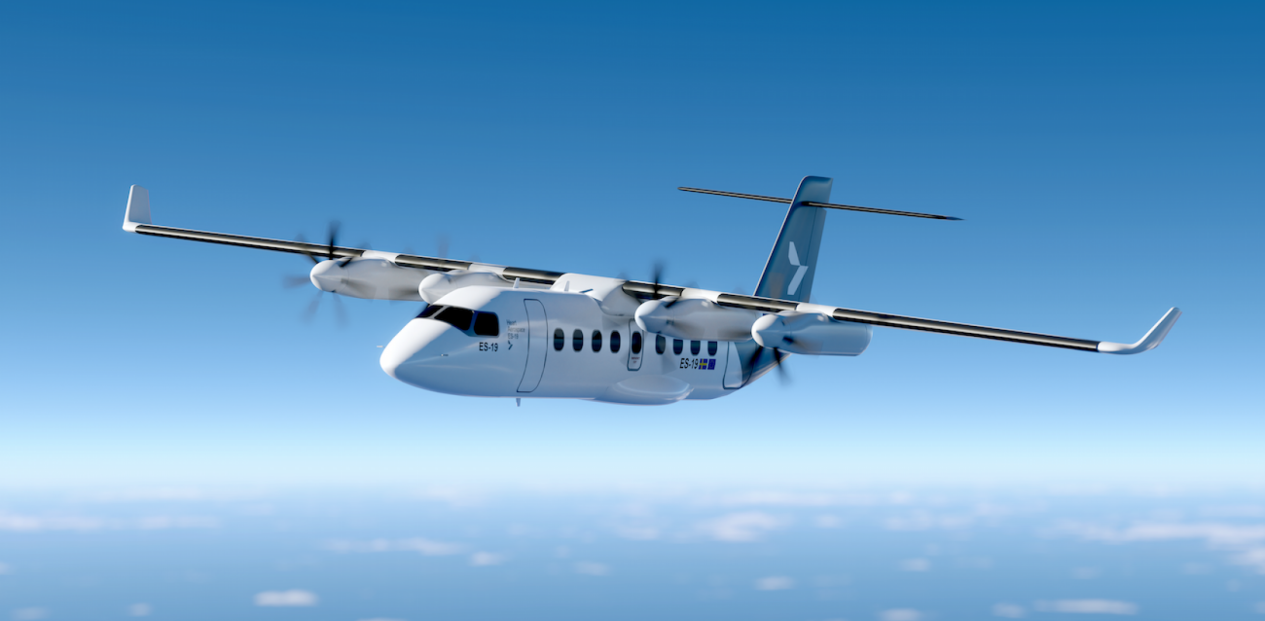Phone: +86 21 51559030
contact@galleon.cc
Heart Unveils Electric Propulsion System for ES-19 Airliner
Sep 28,2020

Heart Aerospace says it can get its all-electric ES19 regional airliner in commercial service in 2026.
Heart Aerospace on Wednesday unveiled the electric propulsion system that will power the ES-19 regional airliner it claims will be ready to enter commercial service in the summer of 2026. The Swedish company, which is backed by EQT Ventures, also announced that it has secured €2.5 million ($2.9 million) in financial support from the European Innovation Council Green Deal Accelerator Program.
The 19-seat ES-19 features four propellers powered by electric motors. The preliminary design for the aluminum-fuselage, fixed-wing model shows winglets and a T-shaped tail and somewhat resembles a smaller version of the De Havilland Canada Dash 7.
According to Heart Aerospace, which is headquartered at Gothenburg¡¯s Save Airport, the all-electric aircraft will be able to fly up to around 400 km (217 nm) and operate from runways as short as 750 meters (2,461 feet). It is expected to have a top speed of 215 knots and a cruise speed of 180 knots. The company maintains that these low speeds will not be a disadvantage on short sectors, especially because the aircraft will be able to operate from smaller, less crowded airfields that will shorten door-to-door journey times.
The company was formed in 2018, initially as part of the Electric Air Travel in Sweden (ELISE) project, and funded by the country¡¯s Vinnova innovation agency along with several other undisclosed backers. Its engineering team includes veterans of almost 70 aircraft programs, including the Bombardier CSeries, HondaJet, and Zunum Aero¡¯s electric aircraft.
Testing has already begun with a ground-based prototype of the complete propulsion system, and a 20 percent scale model of the aircraft is due to start flight tests before the end of 2020. The program plan calls for a full-scale prototype, which will be quite close to the series production design, to start flight tests in mid-2024.
The aircraft will be certified under EASA's CS23 standards. The manufacturer is in the early stages of applying for design organization approval.
Heart has developed its propulsion system in-house and is using automotive industry batteries as its power source. MT Propeller is providing the ES-19¡¯s seven-blade propellers. The company is in talks with several aerospace groups with a view to source cockpit systems and flight controls.
The company claims that eight airlines from across Europe, North America, and Asia have signed letters of intent to purchase a total of 147 examples of the ES-19. These include SAS, Braathens and Wideroe in Scandinavia; Air Greenland; New Zealand¡¯s Sounds Air; Pascan in Quebec; Quantum Air in California; and UK startup CityClipper.
Heart has not published a base price for the aircraft but at the stated €1.1 billion ($1.3 billion) combined value of the letters of intent this would suggest a unit price of almost $8.8 million. The company believes the cost could fall further as production costs for the propulsion system are reduced when volumes are scaled up.
As electric propulsion technology improves, Heart has ambitions to extend the range of the ES-19 or subsequent models to around 2,000 km/1,080 nm. According to the company, this range would cover as many as 85 percent of airline departures worldwide and 43 percent of current carbon dioxide emissions from aviation.
The European Innovation Council Green Deal Accelerator Program is backed by the European Commission and the European Development Bank. Under the proposed European Green Deal, the European Commission is seeking to reduce all greenhouse gas emissions by at least 50 percent by 2030.
Initially, Heart is targeting the anticipated early adoption of electric aircraft in Scandinavia. In its native Sweden, the government has committed to making all domestic flights fossil-fuel-free by 2030, while neighboring Norway has a goal of all domestic flights being electric-powered by 2040.
According to Heart Aerospace CEO and founder Anders Forslund, the Covid-19 pandemic has increased pressure on the air transport industry to reshape its approach to environmental and financial sustainability. He pointed to the fact that in Europe some government aid for struggling airlines has come with requirements that it be matched by more ambitious targets for reducing the sector¡¯s carbon emissions.
In the face of declining demand for air travel prompted by Covid and the so-called "flight shaming" trend for consumers to fly less frequently, Forslund commented, ¡°This is a reset moment, as across the board the provision of public finance comes with the caveat that bailouts will only be offered in exchange for cutting emissions, and electric aircraft could be the most cost-effective and sustainable way to travel.¡±
Electric propulsion system and simulation, as the current frontier technology, not only accelerate the development process of aero-engine, but also promote the energy conservation and emission reduction of aero-engine. Under this background, the Gas Turbine Engine Simulation Technology Development Forum 2020 will be held on October 15th - 16th, in Shenyang City, China. This forum has 6 professional sub-forums on October 16th, there are Totality and System Professional Simulation Technology Development Forum, Turbomachinery Professional Simulation Technology Development Forum, Gas Turbine Professional Simulation Technology Development Forum, Structures Strength and Vibration Professional Simulation Technology Development Forum, Combustion and Heat/Mass Transfer Professional Simulation Technology Development Forum, Design, Manufacturing and Materials Simulation Professional Simulation Technology Development Forum.
Click here to register you interest or contact with Sara directly.
